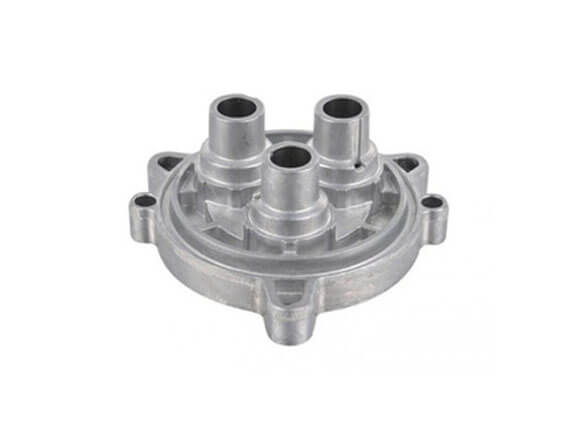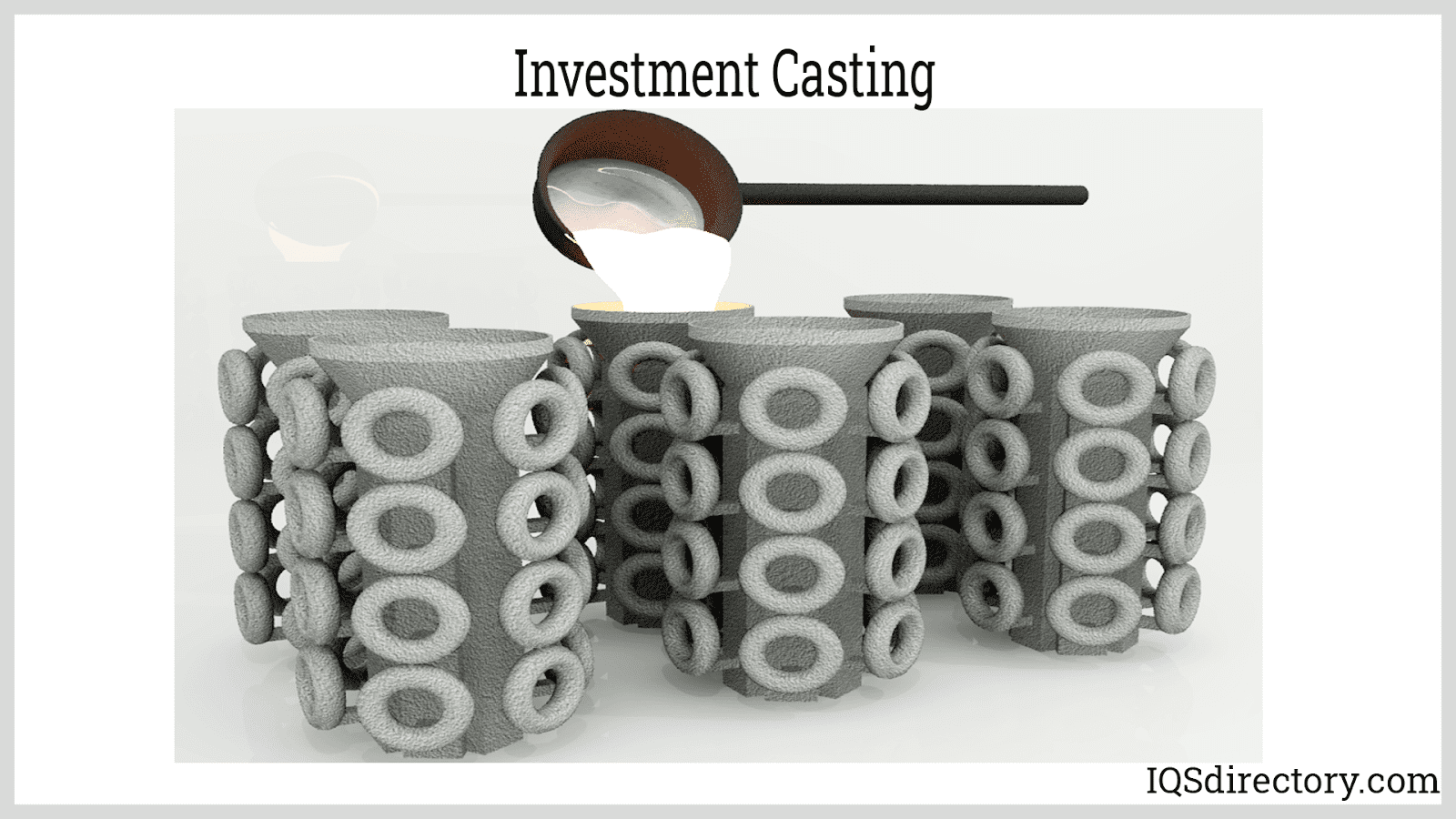Learn how aluminum casting delivers consistent manufacturing results
A Comprehensive Overview to Selecting the Right Foundry Services for Your Task Demands
Choosing the appropriate factory services is necessary for the success of any type of project. Each spreading technique-- sand spreading, financial investment spreading, and die spreading-- has special advantages. Understanding these alternatives aids in making notified choices. Material option, production capacities, and quality control are key factors to think about. Additionally, examining costs can affect lasting feasibility. Aluminum Foundry. What factors should lead this decision-making process?
Recognizing the Different Types of Shop Services
While the globe of shop services may seem complex in the beginning glimpse, understanding the different kinds can considerably streamline the manufacturing procedure. Foundries typically focus on casting metals, and the primary types include sand casting, financial investment spreading, pass away spreading, and centrifugal casting.
Sand spreading involves producing mold and mildews from sand and is excellent for large elements or low-volume production. Financial investment casting, on the other hand, uses high accuracy for detailed designs, making it appropriate for aerospace or clinical applications. Die casting, defined by forcing liquified metal into molds under high pressure, is effective for mass manufacturing of smaller sized components.
Centrifugal casting makes use of rotational pressure to distribute molten metal, producing strong, cylindrical components. Each service type is and has distinctive benefits picked based upon details project requirements. Comprehending these differences enables producers to choose the most proper foundry service, ultimately enhancing performance and product top quality.
Trick Variables to Think About in Material Selection
Choosing the ideal product for foundry services is a vital action that affects the general success of a job. Secret elements in material option consist of mechanical residential properties, thermal resistance, and corrosion resistance - Precision aluminum casting. Understanding the desired application and its needs is essential; products have to endure operational tensions while preserving honesty gradually
One more essential factor to consider is the material's compatibility with the chosen production procedure, as some products are much better suited for particular techniques. Cost-effectiveness additionally plays a considerable function, as budget plan restrictions can restrict options.

Availability and lead times of materials can affect job timelines, making it essential for task managers to examine these variables completely. By carefully assessing these aspects, one can ensure a much more reliable and successful shop solution experience.
Examining Manufacturing Capacities and Technologies
Just how effectively a foundry can meet job requirements pivots on its manufacturing capacities and technologies. A complete evaluation of these aspects is crucial for job success. Manufacturing capacities include the shop's capability to deal with differing job dimensions, timelines, and complexities. Comprehending the foundry's devices and machinery is important, as contemporary innovations such as computer system mathematical control (CNC) machining and advanced mold-making methods can considerably improve accuracy and effectiveness.
Furthermore, the foundry's usage of cutting-edge materials and processes, such as 3D printing or shed foam spreading, can supply benefits concerning layout versatility and cost-effectiveness. It is also vital to assess the foundry's ability to range manufacturing, ensuring that they can fit future boosts popular without jeopardizing top quality. By thoroughly analyzing these factors, task managers can make enlightened decisions concerning which foundry is best suited to satisfy their certain production requirements and technological expectations.
Relevance of Quality Control in Metal Spreading
Quality control stands as a crucial column in the steel casting industry, making sure that every part meets rigid specifications and requirements. This procedure involves methodical tracking and analysis of each phase of manufacturing, from preliminary style to final evaluation. Executing strenuous quality control methods boosts the reliability and performance of cast elements, lowering the likelihood of flaws that can jeopardize structural integrity.
Furthermore, effective quality control fosters depend on between customers and foundries, as adherence to high criteria indicates dedication to excellence. It likewise reduces costly rework and hold-ups, improving production processes. By determining potential issues early, quality guarantee not just safeguards the end product however also contributes to continual renovation within the factory's operations. Ultimately, focusing on quality control in steel casting is important for achieving consumer satisfaction and keeping an one-upmanship in the industry.
Evaluating Cost-Effectiveness and Spending Plan Restrictions
While traversing the intricacies of factory services, reviewing cost-effectiveness and budget plan restrictions becomes a crucial element for organizations. Recognizing the complete expense of ownership includes greater than just the first price; it needs an analysis of long-lasting expenditures, including products, labor, and operational effectiveness. Firms should ask for detailed quotes that detail all possible expenses, enabling a more clear comparison in between different foundries.
Furthermore, companies should evaluate their certain project requirements against budget plan limitations. This see here includes reviewing the trade-offs between reduced costs and possible effect on top quality, lead times, and dependability. It is essential to think about whether the chosen shop offers scalable options that can suit future needs without considerable economic strain. By very carefully stabilizing price factors with job goals, business can make informed decisions that optimize both budget plan and performance, guaranteeing effective outcomes for their factory jobs.
Frequently Asked Concerns
Just How Can I Ensure Timely Delivery of My Foundry Job?

What Accreditations Should a Foundry Company Have?
A trustworthy factory provider must possess qualifications such as ISO 9001 for top quality administration, ISO 14001 for environmental monitoring, and industry-specific accreditations that demonstrate conformity with security and performance criteria appropriate to the casting procedure.
Can I Visit the Shop Prior To Deciding?
Yes, visiting the factory before making a choice is typically advisable. This permits prospective clients to evaluate the facility, fulfill the team, and warranty that the services straighten with their particular task needs and requirements.
What Is the Common Lead Time for Custom Castings?
The normal lead time for custom castings varies from four to twelve weeks, depending on the intricacy of the layout, product specifications, and the foundry's ability. Timely communication can frequently quicken the process.
How Do Shops Take Care Of Design Adjustments Throughout Manufacturing?
Shops commonly fit style modifications during production by implementing versatile processes. They examine the influence on costs and timelines, interact with clients, and change process to ensure high quality while lessening interruptions to the production schedule.
